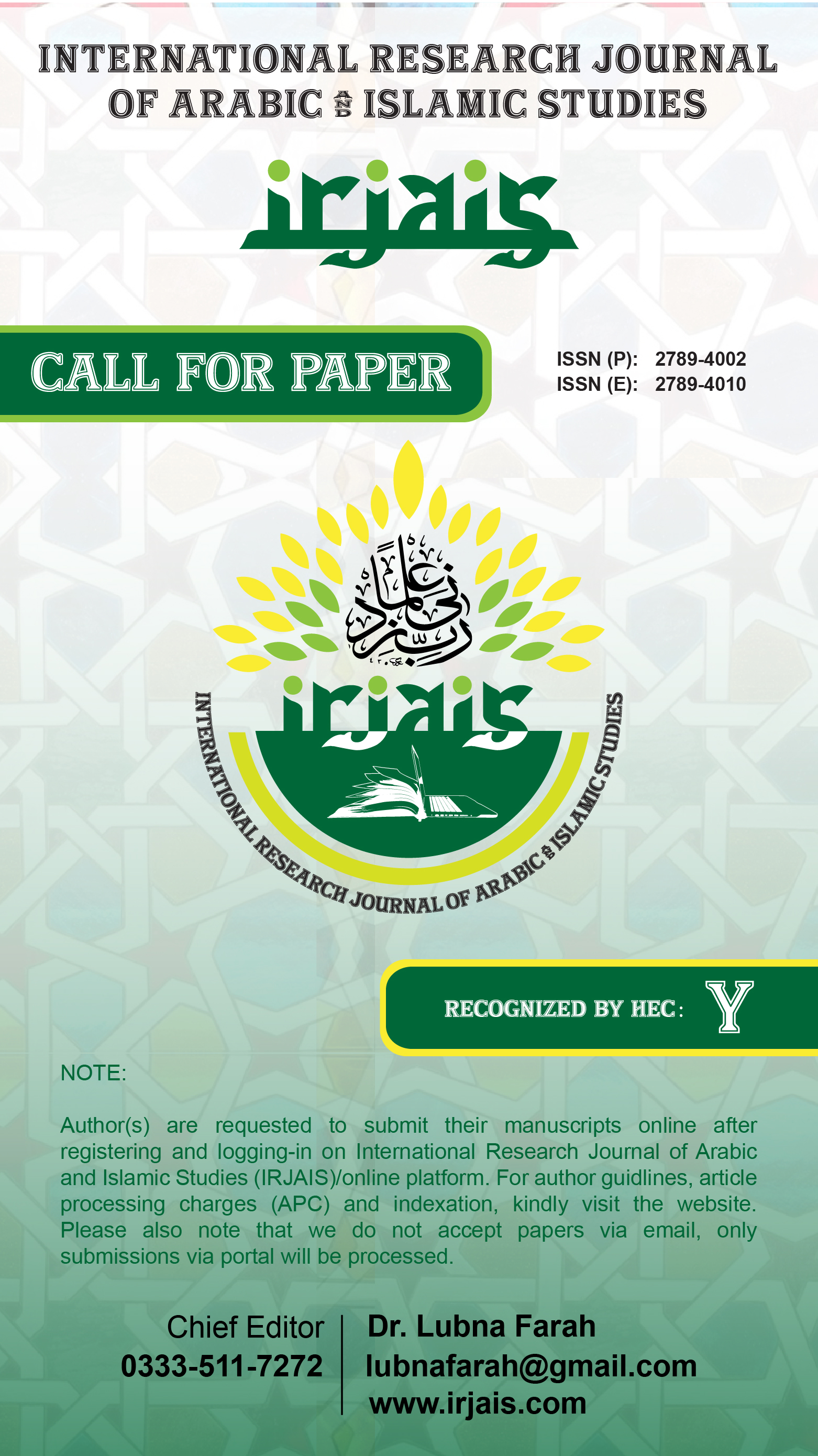RESPONSE OF IQBAL AND JINNAH TO MODERNITY AND COLONIALISM: TOWARDS ISLAMIC STATE
Keywords:
Modernism, Colonialism, Imperialism, Islamic State, Allama Iqbal, JinnahAbstract
Pakistan in the 21th century is the longer discourse on modernity and modernism. While we learn from Iqbal’s creative interaction between civilization and modern time, we learn Jinnah, and his modern politics, constitutional arguments, freedom and democracy. A modernist vision of Pakistan according to which religion is safer in civil society that being a strong arm of modern state. Iqbal and Jinnah both were believed on the idea of Modernity individually and socially for the Muslims in the Subcontinent both got their higher education from European institutes. They opposed the colonialism theology from the British; they also played a great role against it. This research study is based on the qualitative research methodology. Primary and secondary sources are used in this work. The main objective of the research is to explore the struggle of Iqbal and Jinnah modernity and against colonialism and achieve pure Islamic state for Muslims. Iqbal, the poet, philosopher, educator, lawyer, political activist and social reformer is unmatched in his versatility and breadth of knowledge and vision. Iqbal’s place in history is not limited to his role as modernist, but he is the most outstanding poet, philosopher of Islamic world, probably in the general world. Iqbal was against the colonialism ideas which Europe adopted in other undeveloped countries. His poem Taran-e-Hind, against the colonialism, was so popular. Iqbal perceived an attack on the dignity (Khudi), of Muslims as result of the occupation and exploitation of his Indian homeland by British imperialism. As Iqbal, Jinnah was a modernist more in political, cultural and social sense of the world than the constructivism and one of the biggest supporter of Islamic democratic system.





